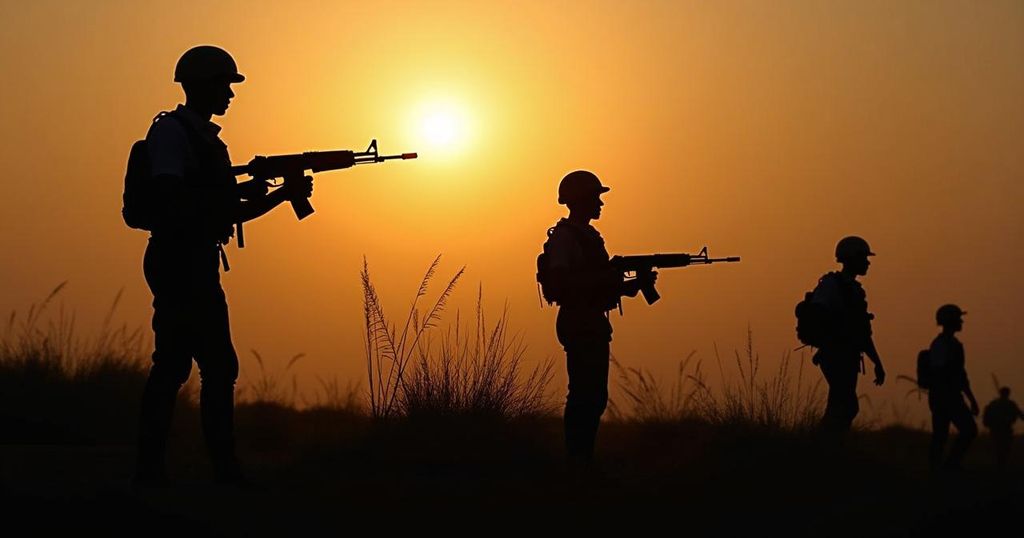UN Extends Kenya-Led Security Mission in Haiti Amid U.S. Proposal Withdrawal

The UN Security Council has extended the mandate of the Kenya-led Multinational Security Support mission in Haiti for another year, despite significant personnel shortages and funding challenges. The U.S. withdrew its proposal to convert the mission into a UN peacekeeping operation due to opposition from China and Russia. The mission aims to assist the Haitian National Police in combating gang violence and restoring security amidst ongoing instability in Haiti.
The UN Security Council has unanimously voted to extend the mandate of the Kenya-led Multinational Security Support (MSS) mission in Haiti for an additional year, continuing its crucial support to the Haitian National Police as they endeavor to combat rampant gang violence and restore stability. Initially set to expire on October 2, 2024, the extension reflects a dire need for ongoing assistance in a country grappling with severe security challenges. However, the United States has withdrawn its previous proposal to transition the MSS into a UN peacekeeping operation, a decision influenced by opposition from both China and Russia. U.S. Ambassador to the UN, Linda Thomas-Greenfield, remarked on social media platform X, formerly known as Twitter, “Today’s unanimous renewal sends a strong message to the people of Haiti: the world stands with you.” Despite backing the extension, the current state of the MSS is alarming, with only 407 personnel deployed in Port-au-Prince, significantly below the intended level of 2,500 police and military members. Financially, the situation is also precarious; while the U.S. has contributed nearly $300 million in equipment, the UN trust fund managed to collect only $67 million out of its $84 million goal. Notably, as outlined by UN Deputy Secretary-General Amina J. Mohammed, contributions to the mission have poured in from various nations, including Canada, which pledged $45 million, the U.S. with $15 million, and smaller amounts from France, Spain, Italy, and Turkey. Nonetheless, given the MSS’s estimated annual cost of $600 million, frustrations linger over the lack of sufficient financial backing. The escalation of gang control over significant areas of Port-au-Prince poses continuous challenges for the Haitian government, disrupting crucial efforts to secure essential facilities such as the State University of Haiti and the capital’s port. In response to personnel shortages, nations such as Guatemala and Guinea have offered to deploy additional forces to assist the mission, although precise timelines remain uncertain. In contrast to the U.S.’s failed attempt to transition the MSS into a UN mission, Haiti’s Transitional Presidential Council supports the change, with President Edgard Leblanc advocating for UN assistance to rebuild the nation. He stated, “It is never too late to act rightly and learn from past mistakes.” Nevertheless, skepticism surrounds the idea of a new UN mission in light of the controversial legacy of the previous UN Stabilisation Mission in Haiti (MINUSTAH), which is marred by allegations of serious abuses, including a devastating cholera epidemic and incidents of sexual misconduct. Attorney Brian Concannon, director of the Institute for Justice and Democracy in Haiti, pointed out that, to date, no victims of MINUSTAH’s actions have received justice or reparations. Concannon noted, “The United States may be seeking more funding and a peacekeeping force with better experience. But many Haitians are questioning what tangible results can come from another UN mission after the failures of MINUSTAH.” Despite prevailing challenges, the U.S. maintains its commitment to advocating for a future transformation of the MSS into a UN peacekeeping operation, stressing the importance of responding to calls from the Haitian government for improved support and accountability in any capacity moving forward.
The security situation in Haiti has deteriorated significantly, primarily due to the strong presence of gangs that have taken control of major urban areas, especially in the capital, Port-au-Prince. The Kenya-led Multinational Security Support (MSS) mission was established to assist the Haitian National Police in confronting these gangs and restoring law and order. Despite the international community’s support, the MSS has faced numerous challenges, including inadequate funding and personnel shortages, prompting discussions about transitioning to a more comprehensive UN peacekeeping mission. However, historical grievances related to the UN’s past operations in Haiti complicate current efforts to bolster international support.
In summary, the UN Security Council’s unanimous decision to extend the Kenya-led MSS mission in Haiti highlights the urgent need for international assistance amid ongoing security challenges. The withdrawal of the U.S. proposal to transform the mission into a UN operation indicates complex geopolitical dynamics at play, particularly influenced by opposing views from China and Russia. The discussion surrounding the potential for a UN peacekeeping operation raises critical concerns among Haitians, reflecting both the painful legacy of past missions and the pressing need for effective and accountable support in re-establishing stability in Haiti.
Original Source: haitiantimes.com








